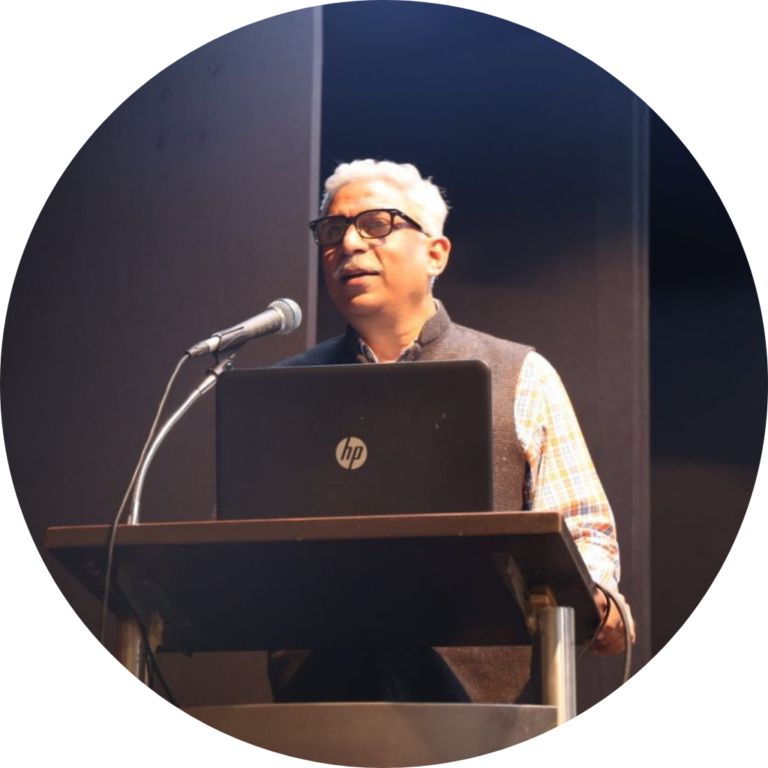Biopharma Lecture series
Immunology and Immunopharmacology: Application in Drug Development
A comprehensive course delves into the fundamental aspects of immunology and immunopharmacology, focusing on their application in the development of biologics.
by Narendra Chirmule, PhD
- 21 Lessons
- 15 Hours
- Ask A Question
Course Description
This comprehensive course delves into the fundamental aspects of immunology and immunopharmacology, focusing on their application in the development of biologics. Led by Dr. Narendra Chirmule, a seasoned expert in the field, participants will gain valuable insights into the intersection of immunology and drug development. The course is designed to equip participants with practical knowledge and skills essential for addressing immunological challenges in research and development.
What Participants Will Learn:
- Gain foundational knowledge of immunology and immunopharmacology in the context of biologic drug development.
- Understand analytical tools to develop methodologies for addressing immunological challenges.
- Acquire the ability to read and comprehend papers in the field of immunology.
- Develop skills in reviewing literature and delivering effective presentations.
- Enhance the capability to articulate complex immunological pathways through writing and drawing.
- Understand multi-factorial mechanisms of immunology, including molecular biology, biochemistry, and structural biology.
- Foster a shared understanding of academic and industry requirements.
Course Topics: The course comprises four lectures covering the following topics:
- Introduction and Immuno-Analogy
- Antigen Presenting Cell (Parts 1 and 2)
- Antibody Molecule and Structure
- T-cell (including thymus, regulation)
- Regulation of Immune Response (Innate immunity, Cytokines, Signal Transduction)
- Cytotoxicity (Parts 1 and 2)
- Autoimmunity Overview (e.g., IL-17, SLE)
- B-cell and T-cell Memory
- COVID Immune Memory
- Immunooncology (Part 1) and the Story of Cancer Immunology
Course Activities: Participants will engage in a variety of activities, including:
- Role-play activities
- Reading and reviewing key papers
- Delivering presentations
- Writing brief reports
Additional Topics Covered:
- Antigen Processing and Presentation
- Organization of MHC Genes
- Molecular Structure of MHC Class I and II Molecules
- Immune Machinery and Receptors
- Co-stimulatory and Accessory Molecules
- Development of the Immune System
- Regulation of the Immune System
- Immune Memory and Vaccines
- Tumor Immunology and Immunotherapy
- Cell and Gene Therapy
- Gene Editing
- Introduction and Immuno-Analogy
- Antigen Presenting cell Part 1
- Antigen presenting cell Part 2
- Antibody molecule
- Antibody Structure
- T-cell
- T-cell in thymus
- T-cell regulation
- Regulation of Immune Response-Innate immunity
- Cytokines
- Signal Transduction
- Cytotoxicity Part1
- Cytotoxicity Part 2
- Autoimmunity- an overview
- Autoimmunity e.g- IL-17, SLE
- B-cell memory
- T-cell and NK cell memory
- COVID_immune memory
- Immunooncology Part1
- Story of cancer immunology
- Nobel Lecture
Narendra Chirmule
Narendra Chirmule has contributed to the development of vaccines and biopharmaceuticals over the past three decades. The drug development experiences include vaccines for cervical cancer [HPV], shingles [Varicella zoster], childhood diarrhea [Rotavirus]), and biopharmaceuticals for osteoporosis (Prolia), rheumatoid arthritis (Enbrel), platelet loss (NPlate), breast cancer (Ogrivi), biosimilar insulins among many others. He has worked on gene therapy using viral vectors at UPenn in the late 1990s. He has published extensively and presented seminars on subjects of immunology, biologics, and vaccines. He has recently written a book on lessons learned from failures in drug development “Good Genes Gone Bad“.
The subject of his Ph.D. was on the development of a leprosy vaccine, from Cancer Research Institute, Mumbai; post-doctoral studies on the pathogenesis of AIDS from Cornell University Medical College-North Shore Hospital, New York; teaching and research as an assistant professor in gene therapy at the University of Pennsylvania, Philadelphia.
